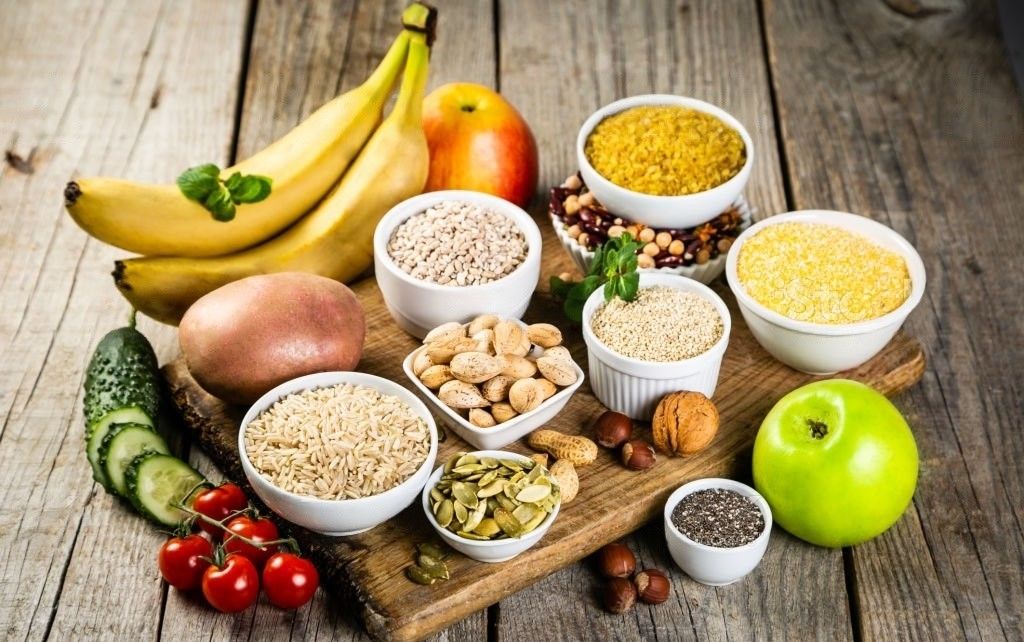Eating Complex Carbs During Luteal Phase
During this phase, focusing on complex carbs can provide numerous health benefits, ranging from increased energy and mood management.

The menstrual cycle influences more than just reproductive health—it's a powerful force that can shape overall well-being, mood, and even dietary needs. One important stage, the luteal phase, can bring about changes that influence a woman's nutritional requirements, making it beneficial to adjust the diet accordingly. A key dietary component worth focusing on during the luteal phase is complex carbohydrates. This article will explore the science behind the intake of complex carbs during the luteal phase, elucidating how they can influence women's health and wellness.
Luteal Phase: Nutritional Considerations
The luteal phase marks the latter half of the menstrual cycle, spanning from the end of ovulation until the start of menstruation. This phase is characterized by a rise in progesterone, a hormone that prepares the body for potential pregnancy and can influence various physical and emotional aspects. An interesting manifestation of increased progesterone is a slightly raised basal metabolic rate, which can increase the body's caloric needs.
The Power of Complex Carbs in the Luteal Phase
- Energy Boost: Complex carbs, such as whole grains, legumes, and starchy vegetables, are broken down more slowly than their simple counterparts. They provide a sustained release of energy, helping to combat potential fatigue associated with the luteal phase.
- Mood Regulation: Complex carbs can aid in the production of serotonin, a neurotransmitter that promotes feelings of well-being and happiness. As mood swings can be common during the luteal phase due to hormonal fluctuations, consuming complex carbs may help stabilize mood.
- Preventing Overeating: Complex carbs are typically high in dietary fiber. Fiber not only aids in digestion, but it also increases feelings of fullness, which can help curb the increased appetite some women experience during the luteal phase.
- Supporting Gut Health: Many complex carbohydrates act as prebiotics, feeding the beneficial bacteria in the gut. A healthy gut microbiome is associated with numerous health benefits, from better immune function to improved mental health—all of which can be especially beneficial during the luteal phase.
- Managing PMS Symptoms: A diet rich in complex carbs may help manage some premenstrual syndrome (PMS) symptoms. A study found that women who consumed more fiber (a component of complex carbs) reported less severe PMS symptoms.
SUMMARY
The luteal phase of the menstrual cycle can be a period of increased nutritional needs. Emphasizing complex carbohydrates during this phase can offer multiple health benefits, from sustained energy and mood regulation to improved satiety and gut health. As always, it's important to remember that individual needs can vary greatly, and dietary changes should be tailored to each person's unique requirements and circumstances.
Jayti Shah is a Clinical Nutritionist with a master's degree in Clinical Nutrition and Dietetics. She is a member of the Indian Dietetic Association (IDA). Over the last 9 years, she has helped 400 clients in their clinical and weight loss journeys. She works with SocialBoat as a nutrition consultant.
At SocialBoat, we offer custom diet plans and guided workouts to help you achieve your goals in a 360-degree approach. Our gamified experience ensures that you don’t find workouts boring and we reward you for being consistent with your efforts.

REFERENCES
- Solomon, S. J., Kurzer, M. S., & Calloway, D. H. (1982). Menstrual cycle and basal metabolic rate in women. The American Journal of Clinical Nutrition, 36(4), 611-616. https://doi.org/10.1093/ajcn/36.4.611
- Slavin, J. L., & Green, H. (2007). Dietary fibre and satiety. Nutrition Bulletin, 32(s1), 32-42. https://doi.org/10.1111/j.1467-3010.2007.00603.x
- Wurtman, J. J., & Wurtman, R. J. (1995). Carbohydrates and depression. Scientific American, 262(1), 68-75. https://doi.org/10.1038/scientificamerican0195-68
- Wanders, A. J., van den Borne, J. J., de Graaf, C., Hulshof, T., Jonathan, M. C., Kristensen, M., Mars, M., Schols, H. A., & Feskens, E. J. (2011). Effects of dietary fibre on subjective appetite, energy intake and body weight: a systematic review of randomized controlled trials. Obesity Reviews, 12(9), 724-739. https://doi.org/10.1111/j.1467-789X.2011.00895.x
- Gibson, G. R., Hutkins, R., Sanders, M. E., Prescott, S. L., Reimer, R. A., Salminen, S. J., Scott, K., Stanton, C., Swanson, K. S., Cani, P. D., Verbeke, K., & Reid, G. (2017). Expert consensus document: The International Scientific Association for Probiotics and Prebiotics (ISAPP) consensus statement on the definition and scope of prebiotics. Nature Reviews Gastroenterology & Hepatology, 14(8), 491-502. https://doi.org/10.1038/nrgastro.2017.75
- Rad, M., Sabzevary, M. T., & Dehghani, M. (2018). Effect of low-glycemic load diet on changes in cardiovascular risk factors in poorly controlled diabetic patients. Indian Journal of Endocrinology and Metabolism, 21(6), 807-812. https://doi.org/10.4103/ijem.IJEM_137_17
